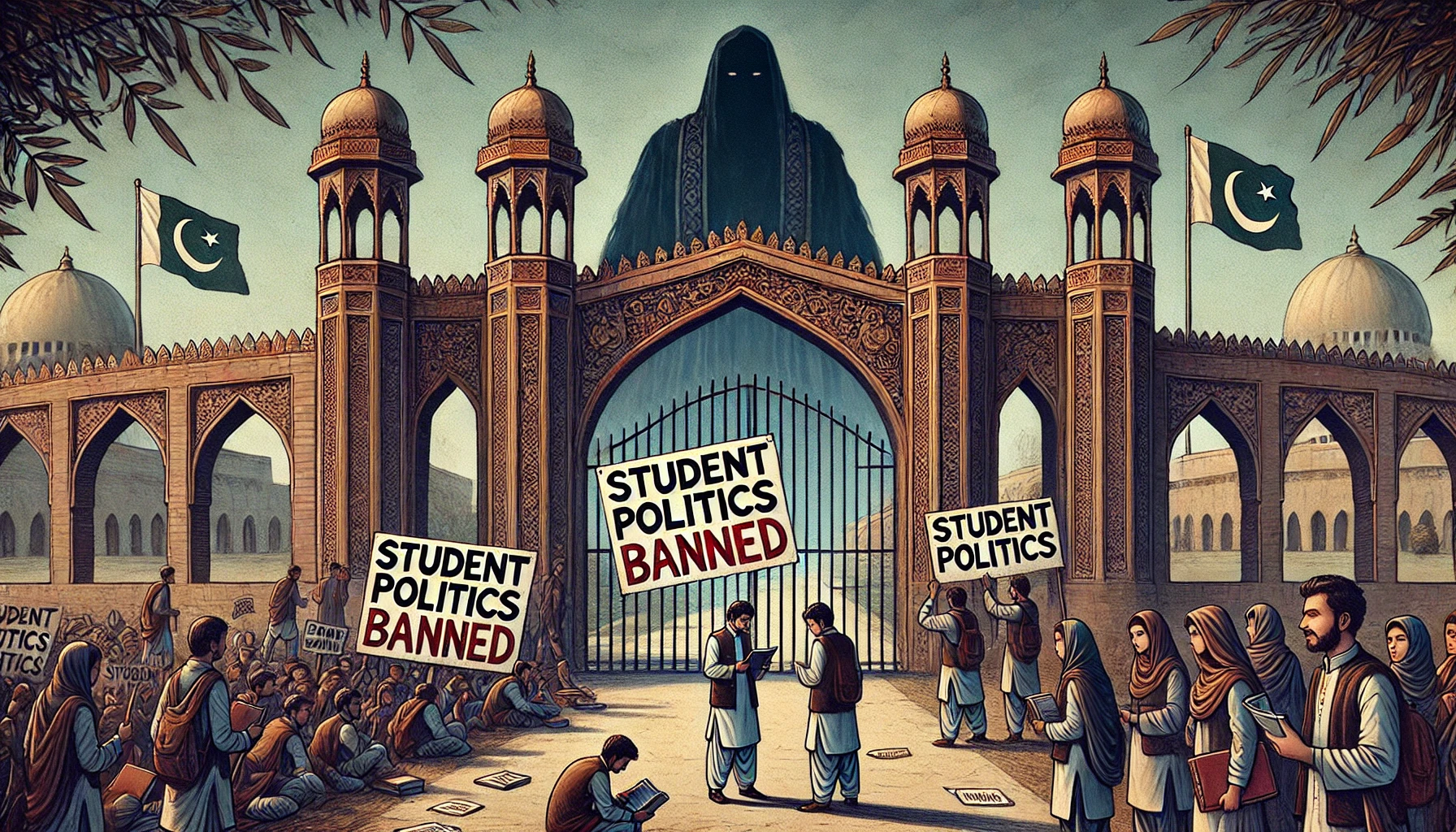By: Jalal Uddin Kakar
It may sound somewhat far-fetched, but the fact is that Pakistani politics has historically been based on dynastic politics since its inception. Student politics is considered an ill-disciplined activity within college and university premises. Even so, if students express their political affiliations, they face administrative retaliation to prevent politics from taking root on campus. General Zia was a wily man who understood that an organized student union posed a threat to his survival. Progressive students had swept the polls in 1983, during the last student union election. Zia saw which way the wind was blowing and reacted by imposing a clampdown on the union. For the same reason, political parties have also found it expedient to keep this restriction in place.
The most disquieting aspect is that private university administrations, mostly elites, oppose unions because they do not want to politicize their students by involving them in political activities. The all-encompassing concept is that students are burdened by the curriculum, confining their minds to the syllabus and keeping them busy with it throughout the day. Their minds have been hijacked to prevent them from thinking beyond the curriculum. Deep in thought, a serious situation arises where students gather in study groups to debate issues or post on social media to vent their frustration and anger. When freedom of expression is suppressed, there is no room for those on the fringes to be brought into the mainstream by moderating their extremism through debate and discussion.
I am of the view that the absence of students in the political structure of Pakistan leads Pakistani politics to remain dynastic. A few elites have ruled the country since its inception. This growing disenchantment paves the way for a never-ending political crisis in Pakistan. The highly sanitized version is that students are vehicles of democracy. This very elitist and aristocratic structure has always served as a barrier to students’ ability to actively participate in the country’s issues. To illustrate this at length, the state machinery has devised a curriculum to jeopardize the political consciousness of students. Most graduates from private universities are still politically immature, and what has been inculcated in their minds is to follow the line and remain apolitical.
Moving forward, progressive politics emerges from institutions where students physically involve themselves in politics, developing new ideas for public welfare and giving rise to leadership potential. Unequivocally, the old traditional system can be eradicated by empowering a new, progressive system with an intellectual approach to address dilemmas more effectively. Student politics was previously tarnished through state tactics, such as allowing Jamaat Islami to radicalize campus environments.
Broadly speaking, what needs to be addressed is the elimination of nationalism’s roots among ethnic groups to prevent ethnic hatred. Student politics should transcend ethnicity, religion, and culture. What matters here is their school of thought, which should be considered pivotal so they have the flexibility of thought to lessen hatred and promote an inclusive and productive environment. It should be noted that they are often made busy fighting each other, diluting the peaceful environment. To pacify this environment, we need to cultivate flexibility of thought to adapt to the cultures and lifestyles of Pashtuns, Balochs, Punjabis, Gilgitis, and others. This one-size-fits-all approach could help develop consensus among students.
Apolitical societies tend to decay quickly. The best way to enhance awareness is to educate youth and sensitize them to these crucial matters of national interest. A consensual solution, along with a congenial environment, is required to evolve a mechanism where all stakeholders agree to foster the emerging generation in this vital pursuit.
The writer is a journalist from Balochistan. He can be reached at [email protected]











